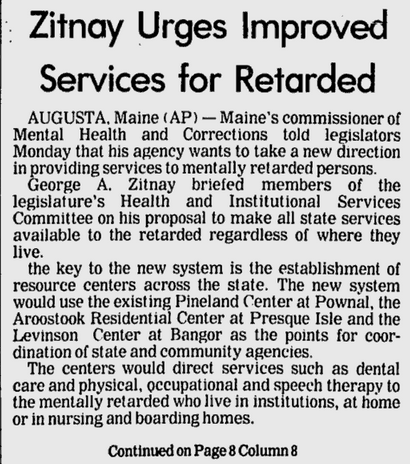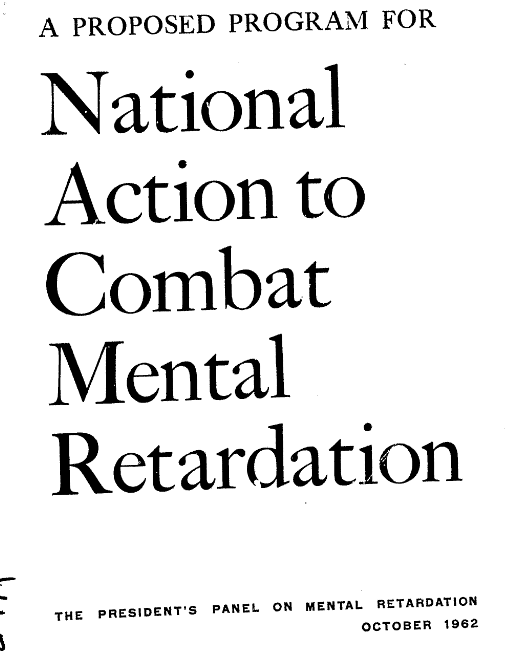Governor Brennan appointed a “Task Force on Long Term Care for Adults” to study the systems of long term care as they stood and bring back policy recommendations to the administration.

The years while the lawsuit worked its way through the courts were marked by much upheaval and many changes at Pineland. Many policies were beginning to be implemented in order to give Pineland residents more autonomy, choice, and opportunities.
This law provided clearer definitions of developmental disabilities that included specific conditions and specified that the conditions originate before the age of 18 (raised to 22 in 1978), are expected to continue indefinitely, and represent a serious handicap.
This law finally included children with disabilities in public education in an inclusive way, mandating that all children have the right to a “free and appropriate public education” in the “least restrictive environment” possible.
This Federal amendment to the 1963 Community Health Centers Act gave states the responsibility for making and implementing plans for comprehensive community services for people with disabilities.
On the ballot in 1969 was a referendum bond issue for $2.5 million in funds to “enlarge and improve” institutions, which passed by a large margin. Complaints brought by staff around pay and hours were also addressed.
Another “responsibility” that was granted to this new department was control over people with developmental disabilities who were determined to need guardianship, and who didn’t have family members willing or able to be guardians.
Congress passes the Maternal and Child Health and Mental Retardation Planning Amendments, which would create funding for both services for children with disabilities and grants to “plan for and take other steps leading to comprehensive State and community action to combat mental retardation”.

President John F. Kennedy had a personal connection to institutionalization and as President he would bring developmental disabilities into the public eye, and make the reenvisioning of services for people with developmental disabilities a cornerstone of his policies.
“The Bureau of Mental Health shall be responsible for the direction of the mental health programs in the institutions within the department and shall be responsible for the promotion and guidance of mental health programs within the several communities of the State.”
